< Back
All You Need To Know About Consensus AI Tool
Declan Gessel
Sep 29, 2024
Writing a research paper can feel like you're stuck in a maze of information, trying to find the right path to reliable sources. If you're nodding along, you're not alone. This is a common struggle, especially when find sources for essay AI projects. But breathe easy; this is where the Consensus AI tool comes in. This guide will introduce you to the tool and show how it can simplify your research process by highlighting its capabilities.
Enter the Consensus AI tool. This resource is an advance, helping you quickly find credible sources and gather insights so you can focus on crafting a compelling argument.
Table Of Contents
What Is The Consensus AI Tool?

The Consensus AI Tool is a beacon of clarity in our data-saturated world. Imagine being able to cut through the noise and make decisions with confidence. This advanced platform simplifies decision-making by analyzing and synthesizing complex data into a cohesive viewpoint.
Whether you're a researcher, analyst, or professional, Consensus AI offers a streamlined way to gather information from verified sources, cross-reference data, and provide a comprehensive summary. It's not just about finding information; it's about finding the correct information quickly and efficiently.
Key Features of Consensus AI
Consensus AI's power lies in its impressive suite of features. At the core is data aggregation, which pulls from diverse trusted sources. Whether academic papers, industry reports, or news articles, Consensus AI ensures a well-rounded dataset. Natural Language Processing (NLP) capabilities allow the tool to interpret unstructured data, extracting key points and trends. This means you get a clear, concise understanding of complex information.
Another standout feature is real-time data analysis. Staying updated with the latest trends is crucial in fast-paced sectors like finance, healthcare, or politics. Consensus AI provides up-to-date insights, helping you make informed decisions quickly. The tool tackles bias head-on, comparing data across multiple sources to ensure a fair, balanced outcome.
Customization is critical with Consensus AI. You can tailor the data to your specific needs, focusing on a particular region, industry, or type of study. This ensures that the insights you receive are relevant and valuable. Additionally, data visualization tools help you understand the data at a glance, while easy integration with existing systems ensures a seamless user experience.
Summary of Features
Data Aggregation
Pulls from multiple trusted sources for a comprehensive dataset.
NLP Capabilities
Understands and processes unstructured data for clear insights.
Real-Time Analysis
Provides up-to-date insights for fast-paced sectors.
Bias Detection
Mitigates bias by comparing multiple viewpoints.
Custom Filters
Tailors data to user needs for relevant insights.
Data Visualization
Presents findings in an easy-to-understand format.
Integration
Fits into existing data ecosystems seamlessly.
These features make Consensus AI a powerful tool for anyone needing to make informed, data-driven decisions, particularly in fast-paced, data-heavy fields like research, business strategy, and policy-making.
Related Reading
• How To Find Good Sources
• Using AI For Research
• Citing ChatGPT
• How To Find Academic Sources
• How To Cite AI In MLA
• AI For Research Paper Writing
• Essay Sources
• AI In Academic Writing
• Most Reliable Sources For Research
• How To Get ChatGPT To Cite Sources
How Consensus AI Works

Gathering Data from Trusted Sources
Consensus AI starts by pulling in information from various credible sources. It targets academic papers, journals, reports, and news outlets. The system can either use predefined databases or allow you to customize the sources to suit your needs. Using web scraping techniques, it prioritizes high-quality, authoritative content. You can even specify which types of sources to prioritize, like peer-reviewed studies or government reports.
Making Sense of Information with NLP
Once the data is collected, Consensus AI uses natural language processing to make sense of it all. This tech helps the AI read articles, reports, and studies like humans. It extracts vital points, themes, and arguments, summarizing them in an easy-to-understand way. The AI focuses on important sections like methodology and results, ignoring irrelevant parts. It also analyzes sentiment to determine if a source supports or opposes a specific argument.
Keeping Bias in Check
After analyzing the data, Consensus AI runs a bias detection algorithm to ensure no single perspective dominates. It compares data from various sources and flags discrepancies, ensuring biased information is balanced by alternative viewpoints. The AI adjusts the influence of biased sources on the final consensus.
Building and Updating Consensus
This is where the tool shines. After aggregating and analyzing the data, the AI synthesizes the information to create a unified view. Depending on the topic's complexity, it summarizes the majority opinion or balances opposing viewpoints. The AI constantly learns from new sources and adapts its analysis, ensuring you have the most up-to-date information. If new studies or reports are published, Consensus AI automatically incorporates them into the existing consensus.
Visualizing Data for Easy Understanding
Consensus AI often includes visual tools like charts and graphs to make the data more user-friendly. These help you quickly grasp trends, spot outliers, or understand the general direction of the consensus. The AI generates visualizations to accompany its analysis, making it easier to see how opinions have shifted over time.
Jotbot is your personal document assistant and source finder. Join 500,000+ writers, students, teams, and researchers worldwide to write more, write better, and write faster with Jotbot's AI writing assistant. Write more intelligently, not harder, with Jotbot's AI writing assistant. Start finding sources for free with Jotbot's source finder today. Sign in with Google and get started in seconds.
7 Alternatives to Consensus AI

1. Jotbot
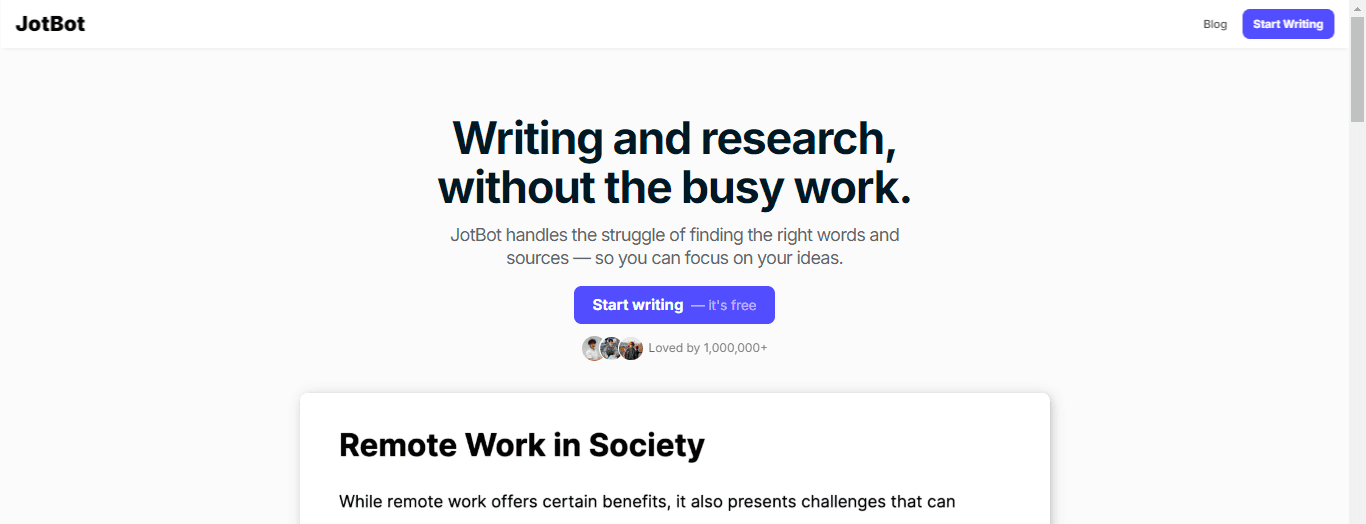
Jotbot is your personal document assistant and source finder. It does AI note-taking, AI video summarizing, AI citation/source finding, and even writes AI outlines and complete essays with Jotbot’s AI essay writer. Write more brilliantly, not harder, with Jotbot's AI writing assistant. Start finding sources for free with Jotbot's source finder today. Sign in with Google and get started in seconds.
2. Zotero: Your Research Companion
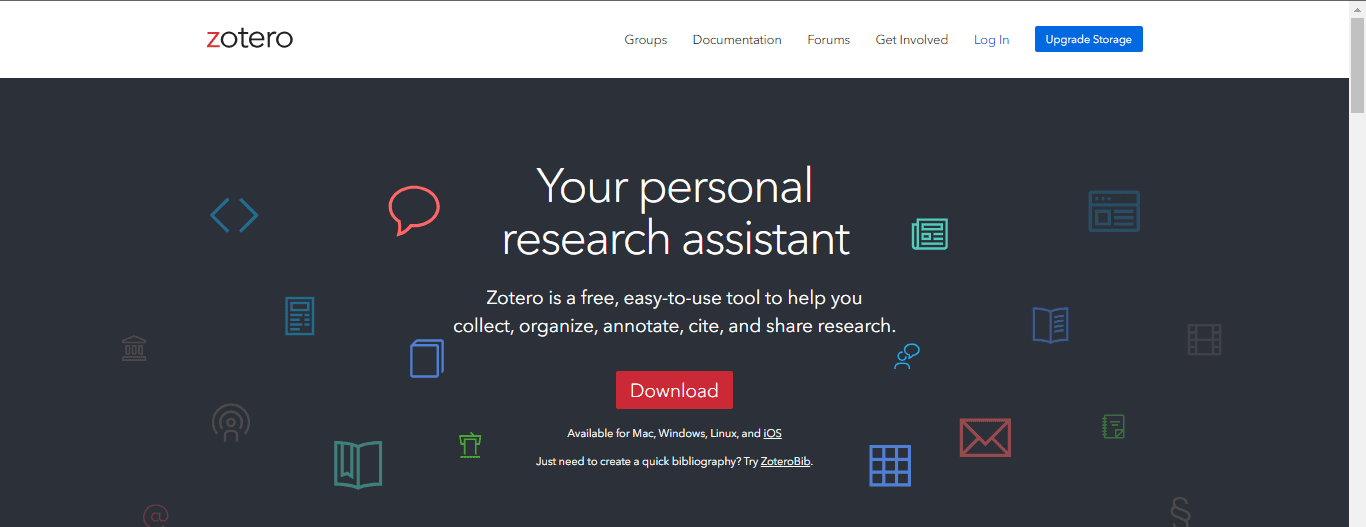
Zotero feels like a trusty research assistant who always keeps going. It helps you collect, organize, and cite your research materials effortlessly. With its intuitive browser extension, you can save articles and papers for future reference. Zotero even generates citations and bibliographies automatically. Researchers, academics, and students love its robust organizing capabilities and integration with word processors.
3. QuillBot: Your Go-to Rewriting Tool
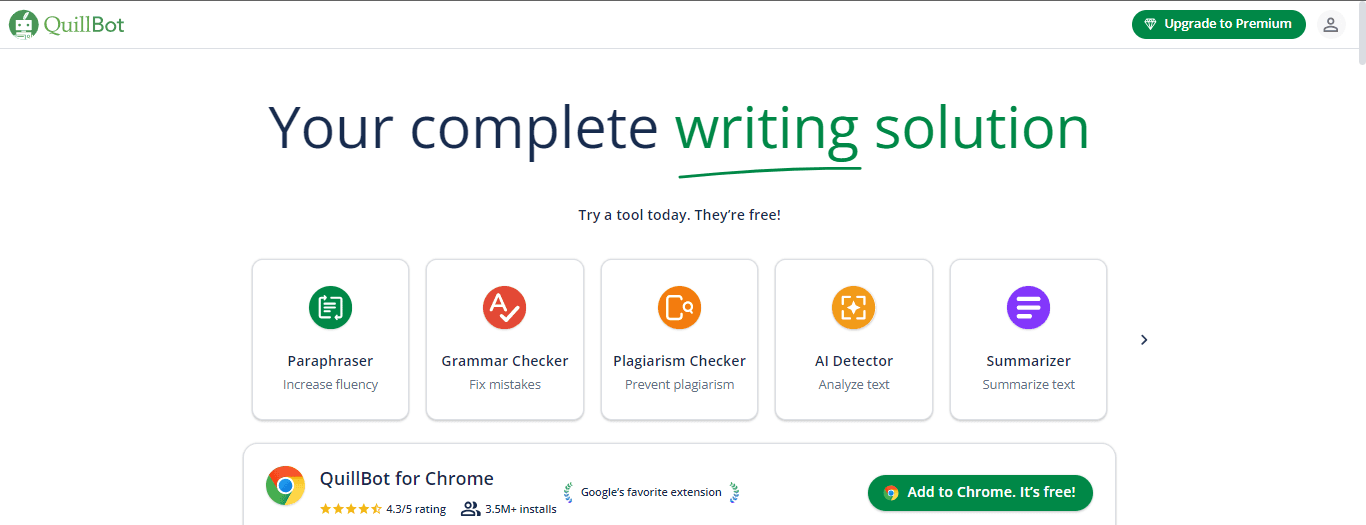
QuillBot is a nifty AI writing tool for those who need to rewrite content without losing the original meaning. To improve clarity and readability, look no further than its grammar checking, citation generation, and summarization features. Whether a student or a professional, QuillBot can help you rephrase content and improve your writing style quickly.
4. Grammarly: The Writing Guru
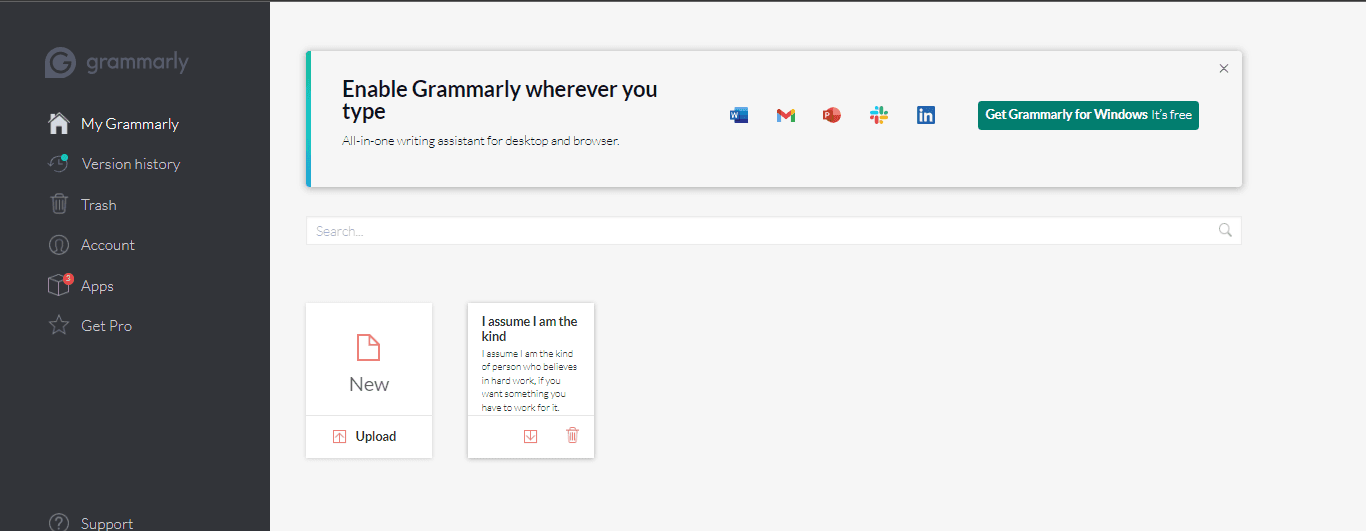
Grammarly is a powerful AI writing assistant that can help you craft polished, error-free content. It provides advanced grammar and spell-checking features, style suggestions and plagiarism detection. It’s an excellent choice for writers, professionals, and students seeking to improve the quality of their work.
5. Scholarcy: The Academic Shortcut
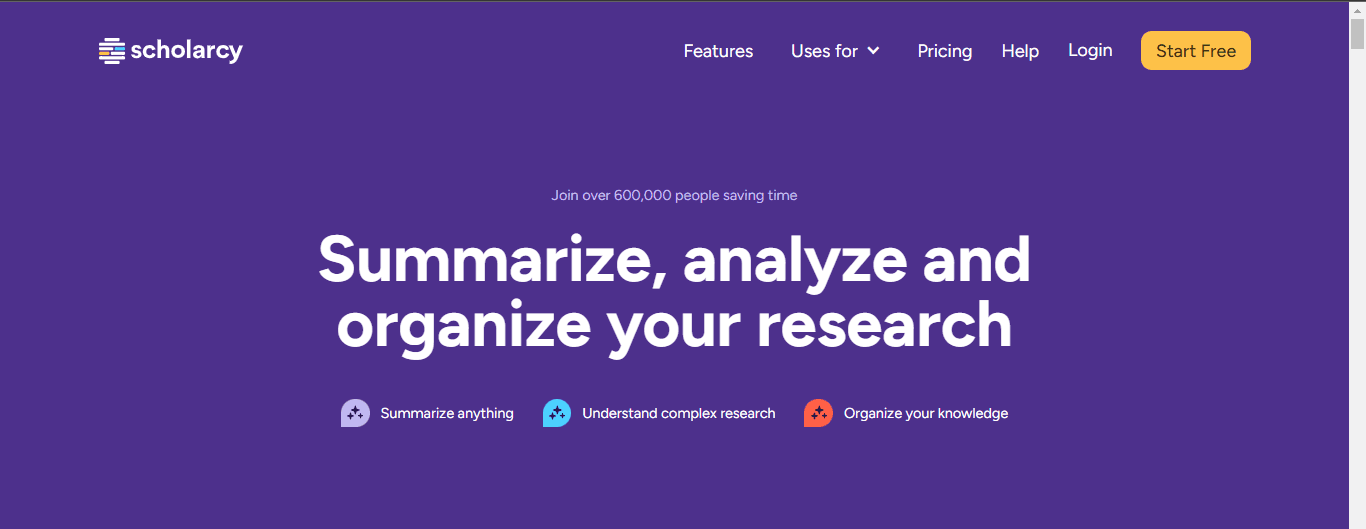
Scholarcy was born from the frustration of reading through lengthy academic papers. This AI tool can summarize complex research papers, extract key information, and even create interactive flashcards for study. Researchers and academics appreciate its ability to process large volumes of material quickly and efficiently.
6. Feedly: The Content Aggregator
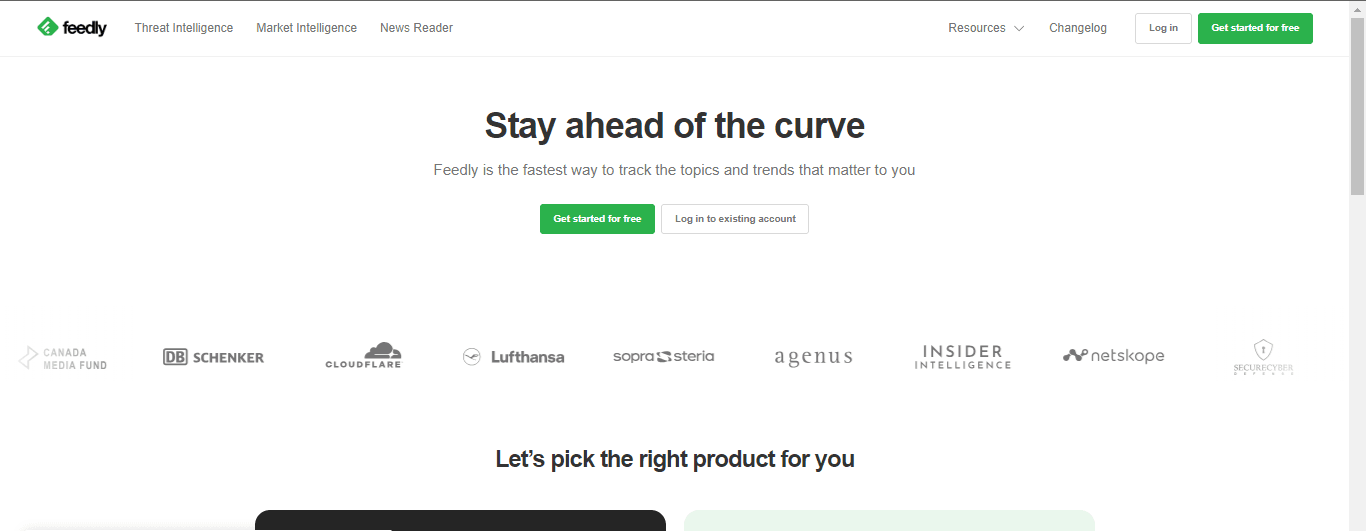
Feedly is an AI-driven content aggregator that helps you gather and organize content from various sources. Its AI-powered recommendation engine suggests content based on your preferences, and it’s beneficial for staying updated on industry trends or research developments.
7. Scite: The Paper Evaluator
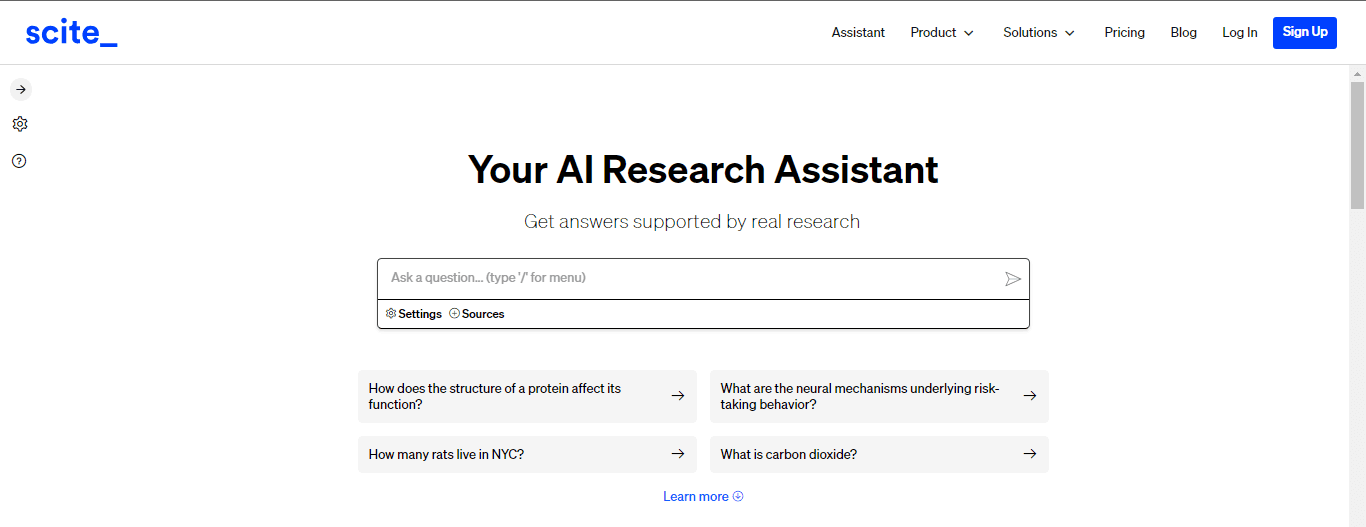
Scite is a tool that uses AI to analyze and evaluate the reliability of scientific papers. It goes beyond citation counts by indicating how papers have been cited—whether they have been supported, refuted, or simply mentioned in other research papers. This allows researchers to assess the credibility of research findings quickly.
Why We Prefer Jotbot to Consensus AI

Jotbot's Content Creation Edge
When it comes to creating content, Jotbot is the powerhouse you need. This tool doesn't just sift through data; it actively helps you build from the ground up. Need to jot down notes, whip up an outline, or draft an entire essay? Jotbot’s got you covered. It’s more than just a tool for analysis—it’s a writing partner that guides you from brainstorming to that polished final draft. Consensus AI, while great for data synthesis, doesn't offer this level of hands-on content creation support.
Research Made Easy with AI Source Finder
Have you ever spent hours hunting down credible sources? Jotbot’s AI source finder takes the headache out of research. Whether diving into an academic paper or crafting an article, this feature locates reliable references. While Consensus AI excels at providing consensus-driven insights, it doesn’t streamline the research process as Jotbot does. With Jotbot, you get quick access to trustworthy information, which is a game-changer for research-intensive projects.
Quick Insights with AI Video Summarization
Don’t have time to watch a full video? Jotbot’s got you. Its AI-powered video summarization pulls out key points fast. This feature is a lifesaver for students or professionals who need to absorb video content quickly. Consensus AI lacks media summarization tools, making Jotbot the go-to for multimedia content. It boosts productivity when you need rapid insights without the time sink.
Power Up with Essay Writing and Outlining
Jotbot’s essay writing and outlining capabilities are a significant win for students and researchers. It crafts structured outlines from scratch and can even write entire essays, allowing you to tweak the tone and style. This feature is invaluable for creating academic or professional content efficiently. While Consensus AI is superb at data analysis, it doesn’t venture into essay writing. Jotbot helps you gather information and organizes and produces your written work.
User-friendly and Accessible for All
Getting started with Jotbot is a breeze. Its user-friendly interface simplifies tasks like note-taking, source finding, and essay writing. Sign in with Google, and you’re ready to go in seconds. Both Consensus AI and Jotbot offer intuitive designs, but Jotbot’s specific tools for content generation make it incredibly accessible for writers and researchers. Its focus aligns perfectly with users who regularly create content.
Collaborate in Real-Time with Ease
Jotbot supports real-time collaboration, making it easy for teams to work together. You can collaborate on documents, share findings, and integrate outputs into platforms like Google Docs or Microsoft Word. While Consensus AI is fantastic for insights and consensus building, it doesn’t offer the same level of collaboration tools. Jotbot’s environment is built for teamwork and is perfect for research or writing projects requiring group effort.
Versatility in Every Task
Jotbot shines with its versatility. Whether you’re a student needing help with an essay, a researcher finding sources, or a professional summarizing videos, Jotbot covers many tasks. Consensus AI specializes in data-driven decision-making, but Jotbot’s broad functionality means it can handle research and content creation, making it a well-rounded tool for diverse needs.
Related Reading
• Best AI Tool For Research
• Reference Finder
• Best AI For Research
• How to Cite AI
• AI For Literature Review
• Websites Like Google Scholar
• AI That Cites Sources
• Best Academic Search Engines
• Academic Research Software
• How To Use Chat GPT For Research
• Best Research Tools For Students
How to Choose the Right Alternative to Consensus AI

Understanding Your Use Case: Align with Your Goals
Choosing the suitable Consensus AI alternative starts with knowing what you need. Are you seeking content creation tools, research assistance, or data analysis capabilities? Identifying your primary use case is the first step. If you're a student needing help with essays and sources, Jotbot might be your go-to. However, if you're diving into large datasets, Elicit or Scite could be more suitable.
Exploring Feature Set and Functionality: Match the Tool to Your Tasks
Each tool is unique, offering features that cater to different needs. Look for AI tools with specific functionalities that align with your tasks. Jotbot shines for note-taking and content creation, Scite focuses on credible citations, and Wolfram Alpha tackles complex computational problems. Knowing what you need can help you find the right tool.
Evaluating Ease of Use: Make Your Experience Seamless
Usability is crucial when selecting an AI tool. You want to spend your time learning a simple system. Choose tools with intuitive interfaces and quick setup processes. If you're new to AI, Jotbot’s user-friendly interface might be appealing, while Zotero’s learning curve might be a consideration.
Considering Integration with Other Tools: Streamline Your Workflow
Seamless integration with existing tools can save you time. Check if the AI tool works well with platforms like Google Docs or Microsoft Word. If collaboration and integration are key, Jotbot and Zotero offer real-time collaboration and integration with popular platforms.
Scaling Up: Ensure the Tool Grows with You
If you expect your workload to increase, consider scalability. Can the tool handle larger volumes of data? Do premium features offer advanced functionality? Elicit and Scite are great for research-heavy projects, while Wolfram Alpha provides advanced tools for complex problem-solving.
Assessing Cost and Value for Money: Get the Best Bang for Your Buck
While some AI tools offer free versions, premium features can enhance their utility. Evaluate pricing models and see if the free version meets your needs or if a paid plan is necessary. Jotbot offers a range of free features, while QuillBot has free and paid tiers depending on your usage.
Looking into Customer Support and Documentation: Find Help When You Need It
Quality customer support and documentation are essential when using AI tools. Check if the company offers 24/7 support or detailed guides to help you get the most out of the tool. A tool like Jotbot provides comprehensive support, which can be a significant advantage.
Write Smarter With Jotbot's Source Finder — Start Writing for Free Today
Jotbot is more than just an app. It's your assistant in the world of writing and research. Need sources for an essay? Jotbot's source finder can pull credible references in seconds. Its AI note-taking feature helps you quickly capture ideas and organize them. Jotbot can summarize videos, making it easier to extract relevant information.
Want to outline an essay? Jotbot's AI outlines your ideas, ensuring your writing flows. It even has an AI essay writer to craft entire pieces. Over 500,000 writers, students, and teams trust Jotbot to boost productivity. Ready to write more intelligently, not more complicated? Sign in with Google and start finding sources for free with Jotbot.
Why Jotbot is a Game-Changer for Writers
In the past, researching and writing essays took hours. You had to sift through pages of information to find suitable sources. But Jotbot's source finder makes it easy. It quickly pulls relevant sources so you can focus on writing. Plus, its AI writing assistant helps you write better essays faster. Whether you're a student, researcher, or professional, Jotbot streamlines your process, saving you time and energy. It's like having a personal assistant to do the heavy lifting for you.
How Jotbot’s AI Writing Assistant Works
Jotbot's AI writing assistant is designed to enhance your writing process. It uses advanced algorithms to analyze your text and suggest improvements. Whether you're writing an essay, report, or blog post, Jotbot helps you refine your ideas and structure your writing.
Its AI note-taking feature captures and organizes your thoughts, making it easier to develop your ideas. The AI video summarizer extracts critical information from videos, saving you time. And the AI citation/source finder helps you locate credible references to support your arguments. With Jotbot, you can write more efficiently and effectively.
The Benefits of Using Jotbot’s Source Finder
Jotbot’s source finder is a powerful tool for anyone who needs to gather information quickly. It scans the web for credible sources and presents them in an easy-to-digest format. This makes finding the information you need to support your writing easier. Jotbot’s AI writing assistant helps you integrate these sources seamlessly into your work. Whether you’re writing a research paper or a blog post, Jotbot’s source finder can save you time and energy while improving the quality of your work.
Related Reading
• Sourcely
• AI Research Tools
• Elicit AI
• Scisummary
• Scholarcy AI
• Mendeley Alternatives
• Cite This For Me Alternative
• Scholarly Sources Examples
• Academic Sources Examples
• How to Find Scholarly Sources
• List of Scholarly Sources
• Examples of Peer Reviewed Sources
• How to Cite a Book
• How to Cite an Article
• How to Cite
• How to Cite a PDF
• How to Cite Multiple Authors MLA
• How to Cite a Website in Text
• How to Cite a Lecture
• How to Cite ChatGPT
Write more, better, faster.
Your personal AI document assistant












